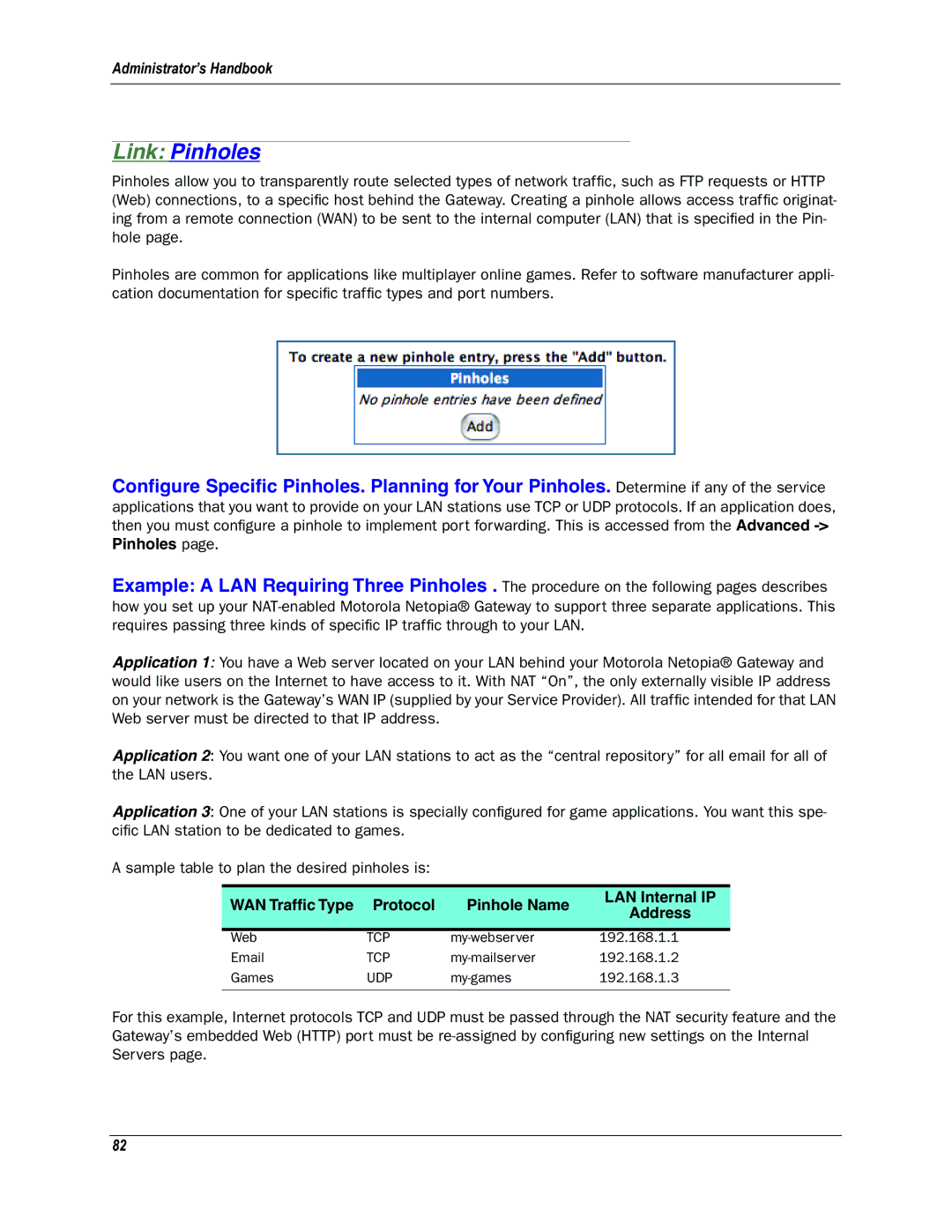
Administrator’s Handbook
Link: Pinholes
Pinholes allow you to transparently route selected types of network traffic, such as FTP requests or HTTP (Web) connections, to a specific host behind the Gateway. Creating a pinhole allows access traffic originat- ing from a remote connection (WAN) to be sent to the internal computer (LAN) that is specified in the Pin- hole page.
Pinholes are common for applications like multiplayer online games. Refer to software manufacturer appli- cation documentation for specific traffic types and port numbers.
Configure Specific Pinholes. Planning for Your Pinholes. Determine if any of the service applications that you want to provide on your LAN stations use TCP or UDP protocols. If an application does, then you must configure a pinhole to implement port forwarding. This is accessed from the Advanced
Example: A LAN Requiring Three Pinholes . The procedure on the following pages describes how you set up your
Application 1: You have a Web server located on your LAN behind your Motorola Netopia® Gateway and would like users on the Internet to have access to it. With NAT “On”, the only externally visible IP address on your network is the Gateway’s WAN IP (supplied by your Service Provider). All traffic intended for that LAN Web server must be directed to that IP address.
Application 2: You want one of your LAN stations to act as the “central repository” for all email for all of the LAN users.
Application 3: One of your LAN stations is specially configured for game applications. You want this spe- cific LAN station to be dedicated to games.
A sample table to plan the desired pinholes is:
WAN Traffic Type | Protocol | Pinhole Name | LAN Internal IP | |
Address | ||||
|
|
| ||
|
|
|
| |
Web | TCP | 192.168.1.1 | ||
TCP | 192.168.1.2 | |||
Games | UDP | 192.168.1.3 | ||
|
|
|
|
For this example, Internet protocols TCP and UDP must be passed through the NAT security feature and the Gateway’s embedded Web (HTTP) port must be
82
